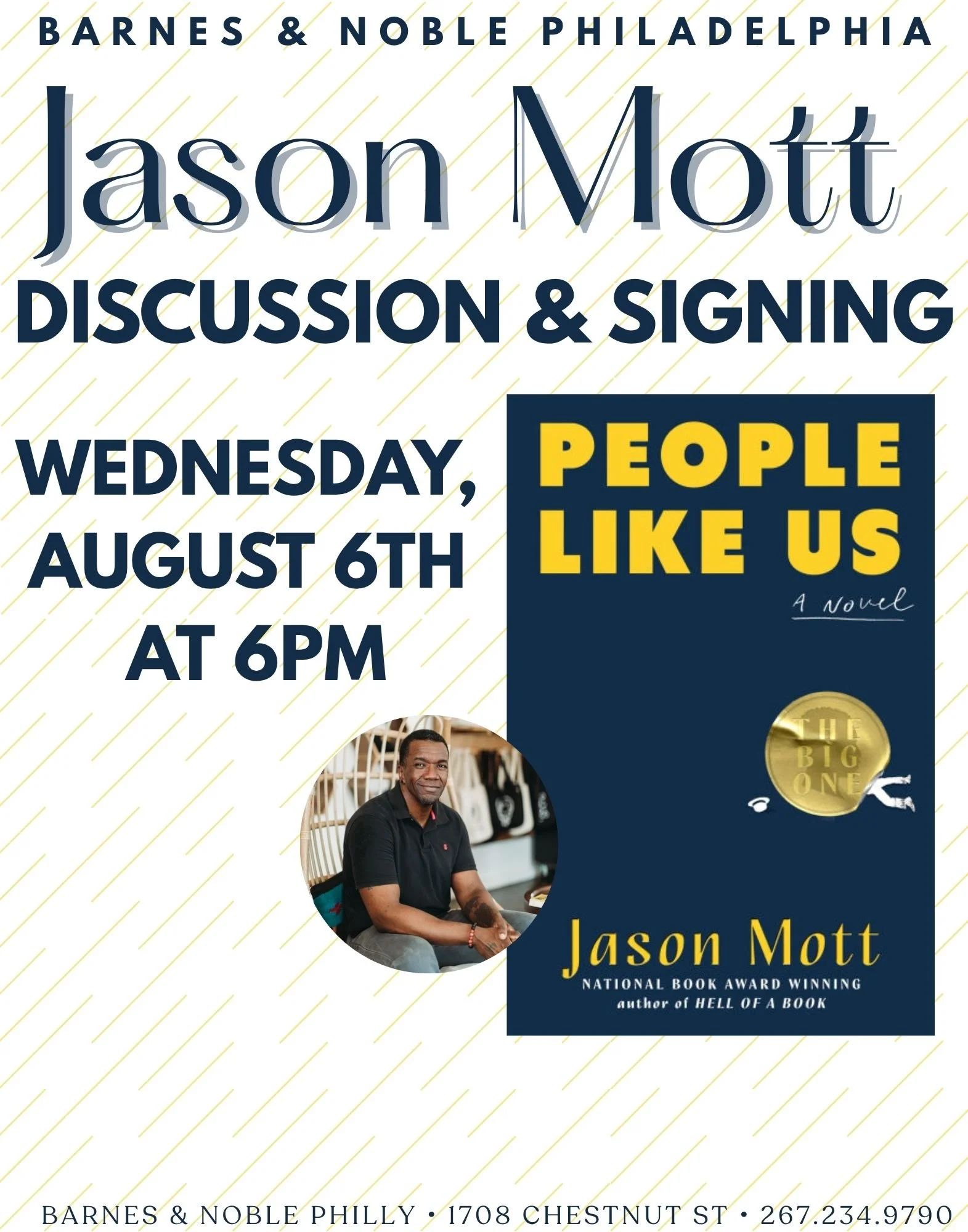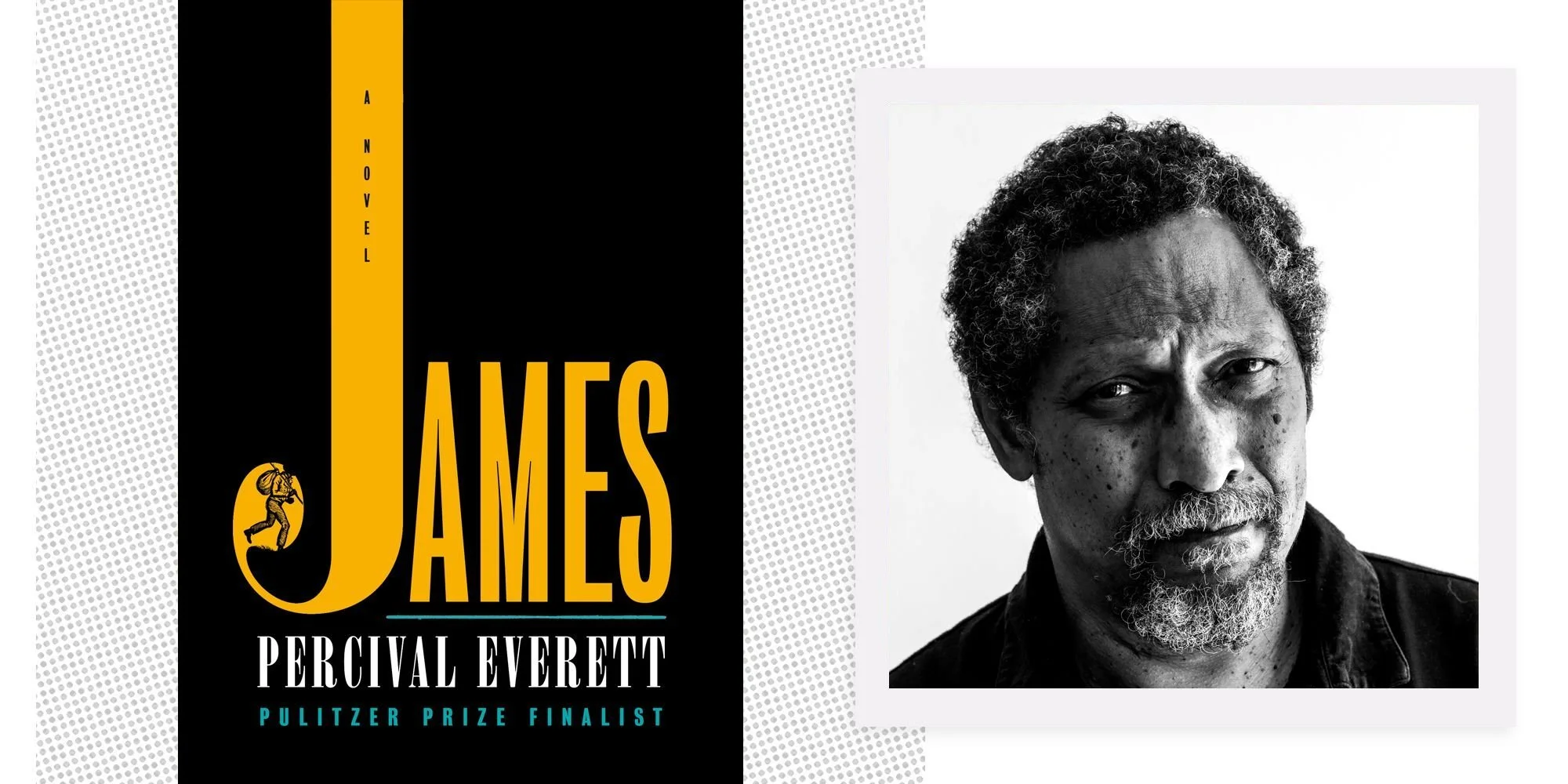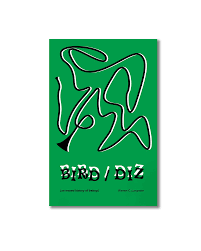
TBN Recommended Books
The Brothers’ Network August 2025 Book of the Month: ‘People Like Us’ Written by National Book Award Winner, Jason Mott
The Brothers’ Network has selected ‘People Like Us’ based on the of wide acceptance of Mott's fourth and most critically acclaimed novel, Hell of a Book, was published by E. P. Dutton on June 29, 2021.[5] It is at times an absurdist and metafictional look into the complex and fraught African American experience. On November 17, 2021, the novel was awarded the 2021 National Book Award for Fiction.[6] It also received the 2021 Sir Walter Raleigh Prize for Fiction[7] and the 2022 Housatonic Book Award for Fiction.[8] It was shortlisted for the 2022 Chautauqua Prize.[9] It was also longlisted for the 2022 Andrew Carnegie Medal for Excellence in Fiction,[10] the 2022 Aspen Words Literary Prize,[11] and the 2022 Joyce Carol Oates Literary Prize.[12] It was also a finalist for the 2022 Maya Angelou Book Award.[13]
Mott was the recipient of a 2024 National Endowment for the Arts Fellowship for Creative Writing.
Jason Mott will be in Philadelphia Pennsylvania on Wednesday August 6, at 1708 Chestnut Street. Call the bookstore directly to reserve your space!
Barnes & Noble Book Store: 267-234-9790
The Brothers’ Network August 2025 Book of the Month: ‘People Like Us’ Written by National Book Award Winner, Jason Mott
The Brothers’ Network has selected ‘People Like Us’ based on the of wide acceptance of Mott's fourth and most critically acclaimed novel, Hell of a Book, was published by E. P. Dutton on June 29, 2021.[5] It is at times an absurdist and metafictional look into the complex and fraught African American experience. On November 17, 2021, the novel was awarded the 2021 National Book Award for Fiction.[6] It also received the 2021 Sir Walter Raleigh Prize for Fiction[7] and the 2022 Housatonic Book Award for Fiction.[8] It was shortlisted for the 2022 Chautauqua Prize.[9] It was also longlisted for the 2022 Andrew Carnegie Medal for Excellence in Fiction,[10] the 2022 Aspen Words Literary Prize,[11] and the 2022 Joyce Carol Oates Literary Prize.[12] It was also a finalist for the 2022 Maya Angelou Book Award.[13]
Mott was the recipient of a 2024 National Endowment for the Arts Fellowship for Creative Writing.
Jason Mott will be in Philadelphia Pennsylvania on Wednesday August 6, at 1708 Chestnut Street. Call the bookstore directly to reserve your space!
Barnes & Noble Book Store: 267-234-9790
Philadelphia, Pennsylvania
James by Percival Everett Book Discussion
Hosted by Sterling and Shane Johnson
Sunday, July 14, 2024
Location: Remote
“Mark Twain’s “Adventures of Huckleberry Finn” is a masterpiece, and “James,” Percival Everett’s new retelling of it, just might be one too”—New York Times
Why Does Everything Have to Be About Race?
Some arguments about race refuse to go away. It’s time, once and for all, to shatter them.
The most toxic racial arguments share one of five traits. They try to erase Black history, prioritize white victimhood, deny Black oppression, promote myths of Black inferiority, or rebrand racism as something else entirely. They’re all designed to distract society from racial justice, but now we have the tools to debunk them.
With a mixture of personal experience, reportage, and extensive research, Keith Boykin takes a wrecking ball to twenty-five of the most widespread deceptions about race, such as:
The Civil War was about states’ rights, not slavery
Affirmative action is reverse discrimination
Critical Race Theory is indoctrinating children to hate one another
and shows us how to refute lies, myths, and misinformation with history, knowledge, and truth.
Bird/Diz by Warren C. Longmire
An innovative new erasure chapbook from Warren C. Longmire, BIRD/DIZ [AN ERASED HISTORY OF BEBOP] navigates the personal and artistic lives of Charlie Parker and Dizzy Gillespie through the author’s own roving imagination.
What becomes of a history overwritten, sampled, celebrated and smeared? How do we find creation past erasure? Part new media archive, part visual poetry project, BIRD/DIZ [AN ERASED HISTORY OF BEBOP] is a journey into highs and lows of Black America’s first global music export. Taking biographies of Charlie Parker and Dizzy Gillespie as a jumping off point, BIRD/DIZ jumps between actual erasures of the written/oral history of Bebop, redacted poems taken from those words, and reflections on historic performances from some of jazz’s chief characters. From St. Louis heroin dins to Copenhagen sound stages, it strives to find, in the continued disappearance of Black American contributions to world art, the seed of innovation that never dies.
Warren C. Longmire is an uncle, writer, performer and educator from the bad part of Philadelphia. He is the current host of House Poet: A Spoken Word Dance Party and Monday Poets at the Philadelphia Free Library. He's been published in journals including Cartridge Lit, The Cleveland Review of Books, The American Poetry Review and is featured in the Best American Poetry 2021. His latest book, Bird/Diz [an erased history of bebop] was released in Nov. 2022 through BUNNY Presse.
About the Book
After the events of September 11, 2001, four disconnected friends in Los Angeles are overcome with feelings of hopelessness and despair. They want to choose a way to literally, metaphysically, and symbolically disappear. But as they are about to discover, disappearing—like living—takes courage.
In a unique guide based on an unpublished story about those friends, André Wade presents seven ways to disappear from life that include encouragement to reinvent self, withdraw into self, isolate, sleep, create invisibility, and more. While reminding others that they must live with the consequences of every decision, Wade also offers empowering suggestions on how to create a clear plan, shun a former existence, and utilize thoughts and imagination to transform into the truest versions of themselves.
Seven Ways to Disappear is a concise guide that offers creative insight on how to employ multiple methods to reinvent ourselves and a path forward in life.
About the Author
André C. Wade was born and raised in Las Vegas, Nevada. After graduating from the University of Nevada-Las Vegas with a degree in psychology, he moved to Los Angeles where he began writing. After moving back to Las Vegas, he was later named a Champion of Pride by The Advocate magazine His writing credits include articles for several magazines and newspapers where he advocated for the LGBTQ+ community. This is his first book.
Seven Ways to Disappear: A Book Within the Book by Andre C. Wade
Desire Lines: A Novel by Cary Alan Johnson
A decade in the making, Desire Lines is a roller coaster ride through New York in the 80s—the sex, the drugs, and the trauma of AIDS. It was a moment marked by dramatic devastation and the fierce determination to survive.
Sarah Schulman describes it as “a gripping, moving story of a vulnerable young gay Black man reaching for some dignity and integrity...riveting and very real.”
Brontez Purnell says that “the scope is heroic, the tone loving and kind.”
If I Survive You is composed of eight interconnected short stories about a Jamaican family living in Florida. The parents, Topper and Sanya, fled Jamaica in the 1970s, desperate to escape political violence and eventually give their two sons, well, everything parents want to give their kids: education, opportunity and a crack at the pursuit of happiness. But the family keeps getting knocked down: by racism, the 2008 recession, and, most literally, by Hurricane Andrew in 1992, which reduces their house to its "skeletal frame." That's not to say Escoffery's characters are mere victims of Fate, as basic as that storm-stripped house of theirs. They themselves have plenty of agency to hurt, love, betray and simply misunderstand each other. And, their house, by the way, was no showplace pre-Hurricane. Here, to give you a taste of Escoffery's boisterous, snappy style are some passages from a story called "Pestilence" in which younger son, Trelawney, describes his childhood home:
The first and only plot of American soil my parents purchased together was plagued, as was the house they built atop it. The millipedes blackened our front steps, made mom tap dance from car to welcome mat. They crept up pipes, bursting from bath drains at our most vulnerable moments.


New York, New York
The Harlem Renaissance and Transatlantic Modernism
Metropolitan Museum of Art, New York City, New York, United States
NOW through July 28th, 2024
The Picnic by Archibald Motley.
“The Harlem Renaissance and Transatlantic Modernism,” will include the works of more than 100 artists from the early 20th century — a time early in the Great Migration, when Black life and Black art was being transformed. It was an artistic revolution that, according to the Met, upended the international understanding of modern art and modern life and changed “the very fabric of early 20th-century modern art.”
Curator Denise Murrell, said the term “Harlem Renaissance” generally refers to a cohort of artists who were “committed to the idea of portraying the modern Black subject in a modern way,” reflecting the changing cultural reality and vibrancy of places like Harlem. She described the style as one that combines African aesthetics with more experimental and expressionistic forms of European modernism.
Denise Murrell, curator of the exhibit, speaking with our founder, Gregroy T. Walker.













